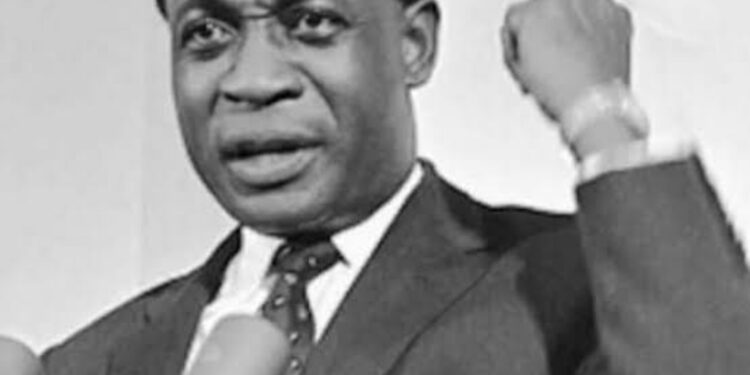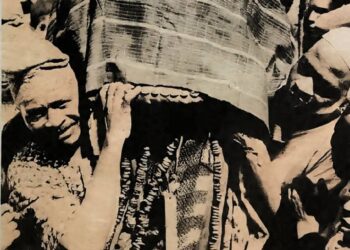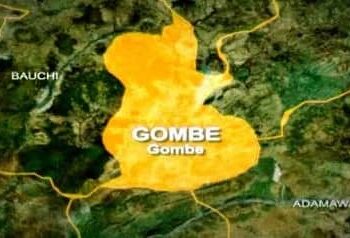Kwame Nkrumah (September 1909 – April 27, 1972) was a prominent Ghanaian nationalist leader who played a pivotal role in leading the Gold Coast to independence from British colonial rule, resulting in the formation of Ghana.
Serving as the country’s first Prime Minister and later as President, Nkrumah was a staunch advocate for Pan-Africanism and worked tirelessly towards the political and economic unification of Africa. His tenure was marked by ambitious development projects and significant political changes, leaving a lasting impact on Ghana and the broader African continent.
Here are 20 detailed and succinct facts about Kwame Nkrumah:
1. Early Life and Education: Born in Nkroful, in the Western Region of the Gold Coast (now Ghana), Nkrumah was the son of a goldsmith and a retail trader. He was baptized as a Roman Catholic and spent nine years at a Catholic elementary school in Half Assini.
2. Higher Education Abroad: In 1935, Nkrumah traveled to the United States, enrolling at Lincoln University in Pennsylvania. He graduated in 1939 and subsequently earned master’s degrees from both Lincoln University and the University of Pennsylvania.
3. Influence of Marcus Garvey: During his time in the U.S., Nkrumah was deeply influenced by the writings of Marcus Garvey, a Black American leader who advocated for global Black unity and empowerment.
4. Pan-African Congress: In 1945, Nkrumah co-organized the 5th Pan-African Congress in Manchester, England, which was instrumental in advancing the cause of African nationalism and decolonization.
5. Formation of the Convention People’s Party (CPP): After a split with the United Gold Coast Convention (UGCC), Nkrumah founded the CPP in 1949, advocating for immediate self-governance and mobilizing mass support through campaigns of “positive action.”
6. Imprisonment and Political Rise: Following a campaign of civil disobedience in 1950, Nkrumah was arrested and sentenced to prison. However, his CPP won the 1951 general elections, leading to his release and appointment as Leader of Government Business, and later as Prime Minister in 1952.
7. Ghana’s Independence: On March 6, 1957, the Gold Coast gained independence from Britain, becoming Ghana, with Nkrumah as its first Prime Minister. This marked the first sub-Saharan African nation to achieve independence.
8. Republic and Presidency: In 1960, following a plebiscite, Ghana became a republic, and Nkrumah assumed the role of its first President, consolidating significant executive powers.
9. Advocate for Pan-Africanism: Nkrumah was a leading figure in the Pan-African movement, hosting several key conferences in Accra, including the First Conference of Independent States in 1958 and the All-African Peoples’ Conference the same year.
10. Economic Development Initiatives: He pursued rapid industrialization, exemplified by the Volta River Project, which led to the construction of the Akosombo Dam, providing hydroelectric power to the nation.
11. Educational Reforms: Nkrumah prioritized education, leading to the establishment of numerous schools and the expansion of educational opportunities across Ghana. The University of Science and Technology was renamed Kwame Nkrumah University of Science and Technology in recognition of his contributions.
12. Foreign Policy and Non-Alignment: He was instrumental in the formation of the Organization of African Unity (OAU) in 1963 and was a proponent of the Non-Aligned Movement, seeking to position Ghana independently amidst Cold War tensions.
13. Authoritarian Turn: Facing internal dissent and external pressures, Nkrumah’s government enacted laws that curtailed political freedoms, including preventive detention acts, leading to criticisms of authoritarianism.
14. Overthrow and Exile: On February 24, 1966, while Nkrumah was on a state visit to China, his government was overthrown in a military coup. He subsequently lived in exile in Guinea, where he was named honorary co-president by President Ahmed Sékou Touré.
15. Literary Contributions: Nkrumah was an accomplished author, penning works such as “Africa Must Unite” and “Neo-Colonialism: The Last Stage of Imperialism,” articulating his vision for Africa’s future.
16. Lenin Peace Prize: In recognition of his efforts towards peace and anti-colonialism, Nkrumah was awarded the Lenin Peace Prize by the Soviet Union in 1962.
17. Death and Legacy: Nkrumah died of cancer on April 27, 1972, in Bucharest, Romania. He is remembered as a visionary leader whose ideas on Pan-Africanism continue to influence African political discourse.
18. Honors and Commemorations: Kwame Nkrumah’s legacy is celebrated in Ghana and beyond. His birthday, September 21, is observed as Kwame Nkrumah Memorial Day, a national holiday in Ghana. Monuments such as the Kwame Nkrumah Memorial Park & Mausoleum in Accra and streets, universities, and institutions across Africa bear his name in recognition of his contributions to African independence and unity.
19. Kwame Nkrumah Mausoleum: His final resting place is the Kwame Nkrumah Mausoleum in Accra, which serves as a major tourist attraction and a symbol of Ghana’s independence struggle. The site includes a museum displaying his personal effects and political history.
20. Influence on African Liberation Movements: Nkrumah’s leadership inspired numerous African independence movements. His ideas influenced leaders such as Julius Nyerere of Tanzania and Patrice Lumumba of the Democratic Republic of Congo, reinforcing his legacy as a Pan-African icon.



















































































 EduTimes Africa, a product of Education Times Africa, is a magazine publication that aims to lend its support to close the yawning gap in Africa's educational development.
EduTimes Africa, a product of Education Times Africa, is a magazine publication that aims to lend its support to close the yawning gap in Africa's educational development.